Dr. Manmohan Singh: A Legacy of Economic Transformation(1932-2024)
Updated on : 27 December, 2024
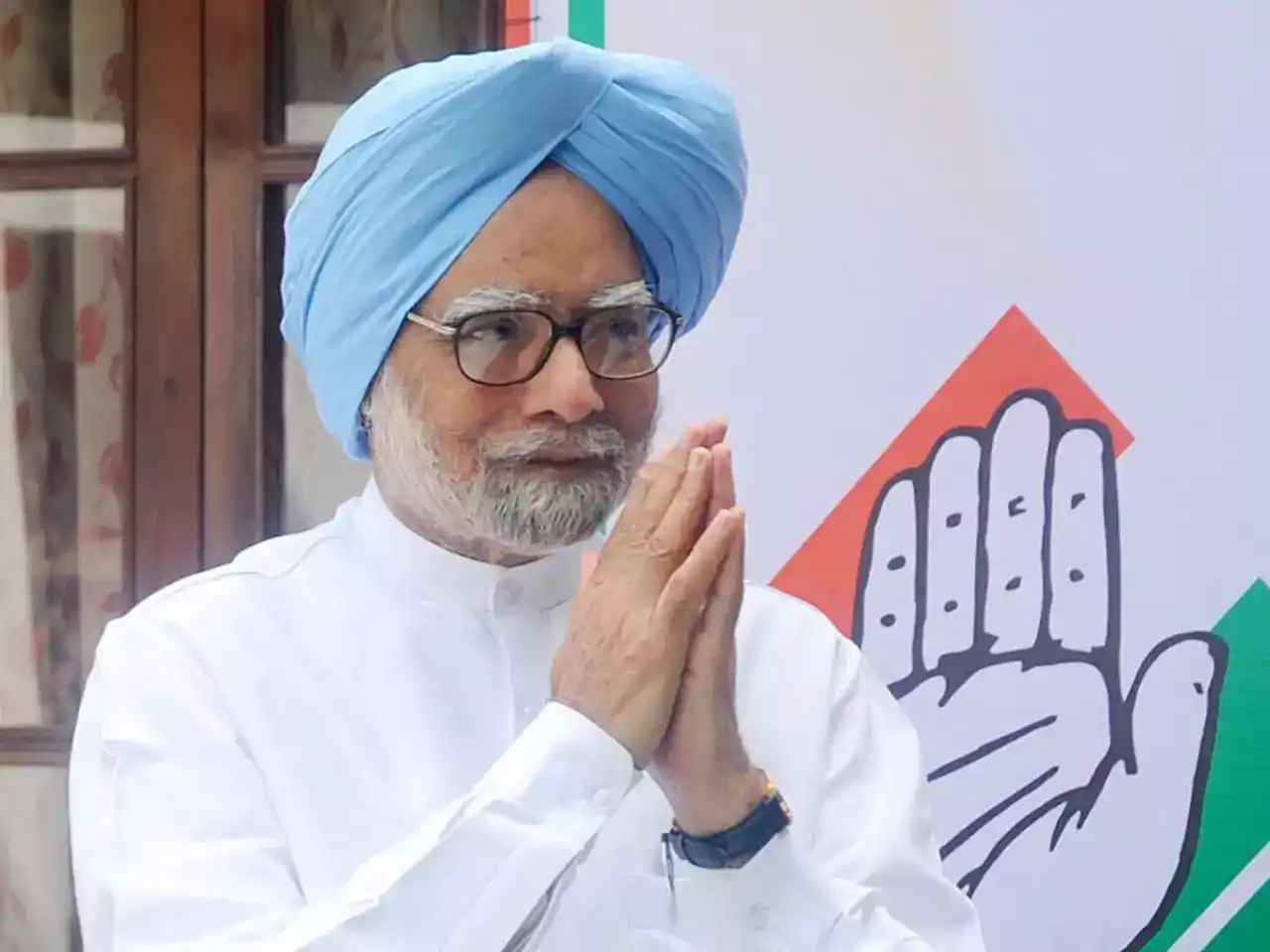
Image Source: timesofindia
Dr. Manmohan Singh, born on September 26, 1932, in Gah, Punjab (now in Pakistan), is a distinguished Indian economist and politician who served as the 14th Prime Minister of India from 2004 to 2014. Renowned for his pivotal role in transforming India's economy, Dr. Singh is often credited with liberalizing the Indian market and setting the stage for unprecedented economic growth in the country. His tenure as Prime Minister was marked by significant achievements, challenges, and controversies, making him a central figure in contemporary Indian politics. This blog explores his life, career, policies, and the enduring impact he has had on India.
Early Life and Education
Dr. Singh was born into a Sikh family in Gah, a small village in Punjab. His father, Gurmukh Singh, was a schoolteacher and his mother, Amrit Kaur, was a homemaker. The partition of India in 1947 forced his family to migrate to India, where they settled in Amritsar. This experience of displacement shaped his worldview and instilled in him values of resilience and hard work.
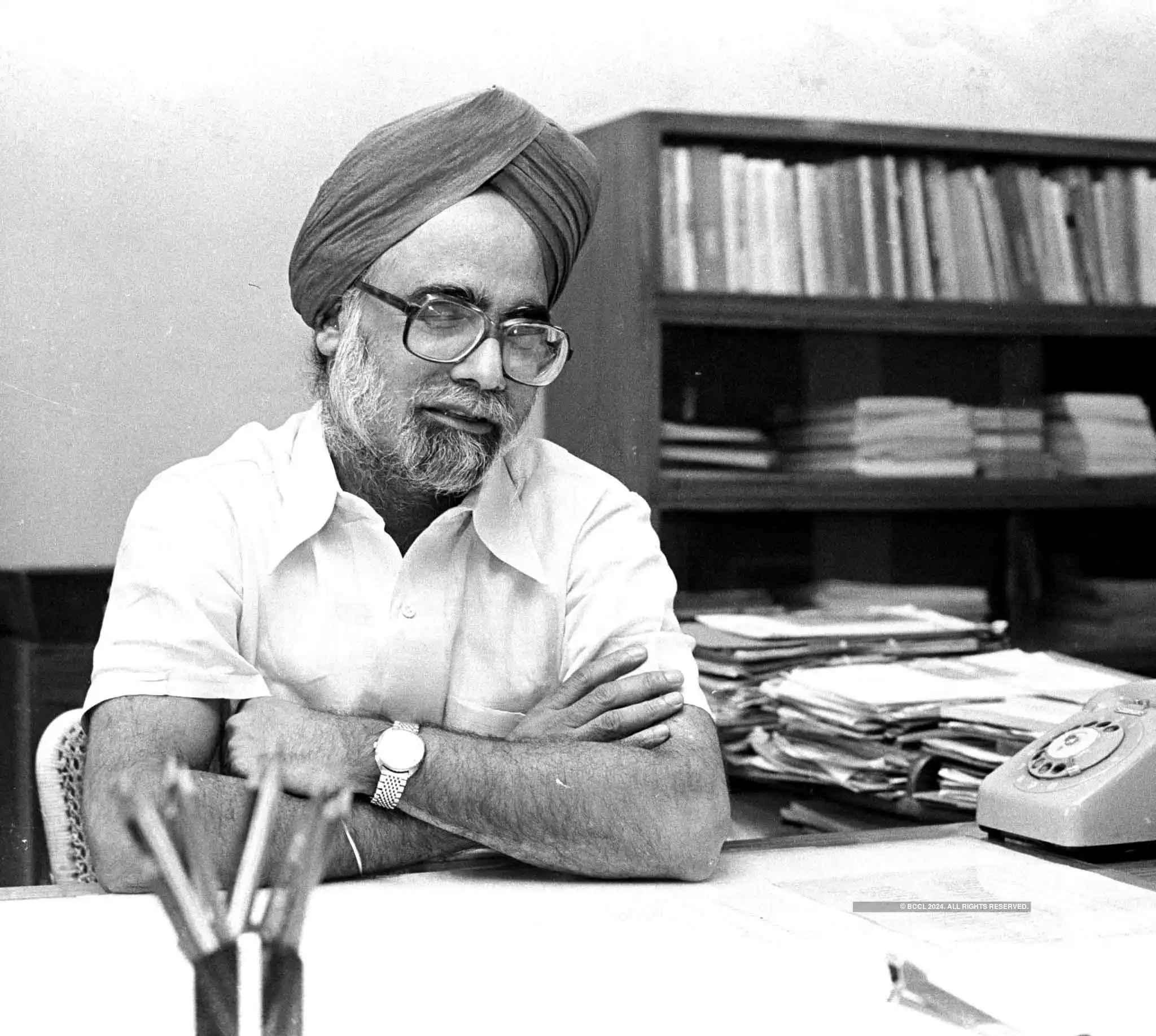
Image Source: static.toiimg.com
Dr. Singh's academic journey began at Panjab University, where he earned his Bachelor’s degree in Economics in 1952 and followed it up with a Master’s degree in 1954. His academic excellence earned him a scholarship to the University of Cambridge, where he completed his M.A. in Economics with First Class Honours in 1957.
After Cambridge, he pursued further studies at Nuffield College, Oxford, where he obtained a D.Phil. in Economics in 1962. His dissertation focused on the economic development of India and provided insights into the challenges faced by developing nations.
Early Career in Economics
Dr. Singh began his professional career as an economist at the United Nations Conference on Trade and Development (UNCTAD) in Geneva before returning to India to join the government service. In 1971, he was appointed as an Economic Advisor in the Ministry of Commerce, marking the beginning of his long and impactful career in public service.
His early roles included serving as Chief Economic Advisor to the Government of India (1972-1976) and Secretary of the Ministry of Finance (1980-1982). In these positions, he gained valuable experience that would later inform his policy decisions as Finance Minister and Prime Minister.
In 1982, Dr. Singh was appointed as the Deputy Chairman of the Planning Commission, where he played a crucial role in formulating India's economic policies during a time when the country faced significant challenges such as high inflation and slow growth rates.
Role as Finance Minister (1991-1996)
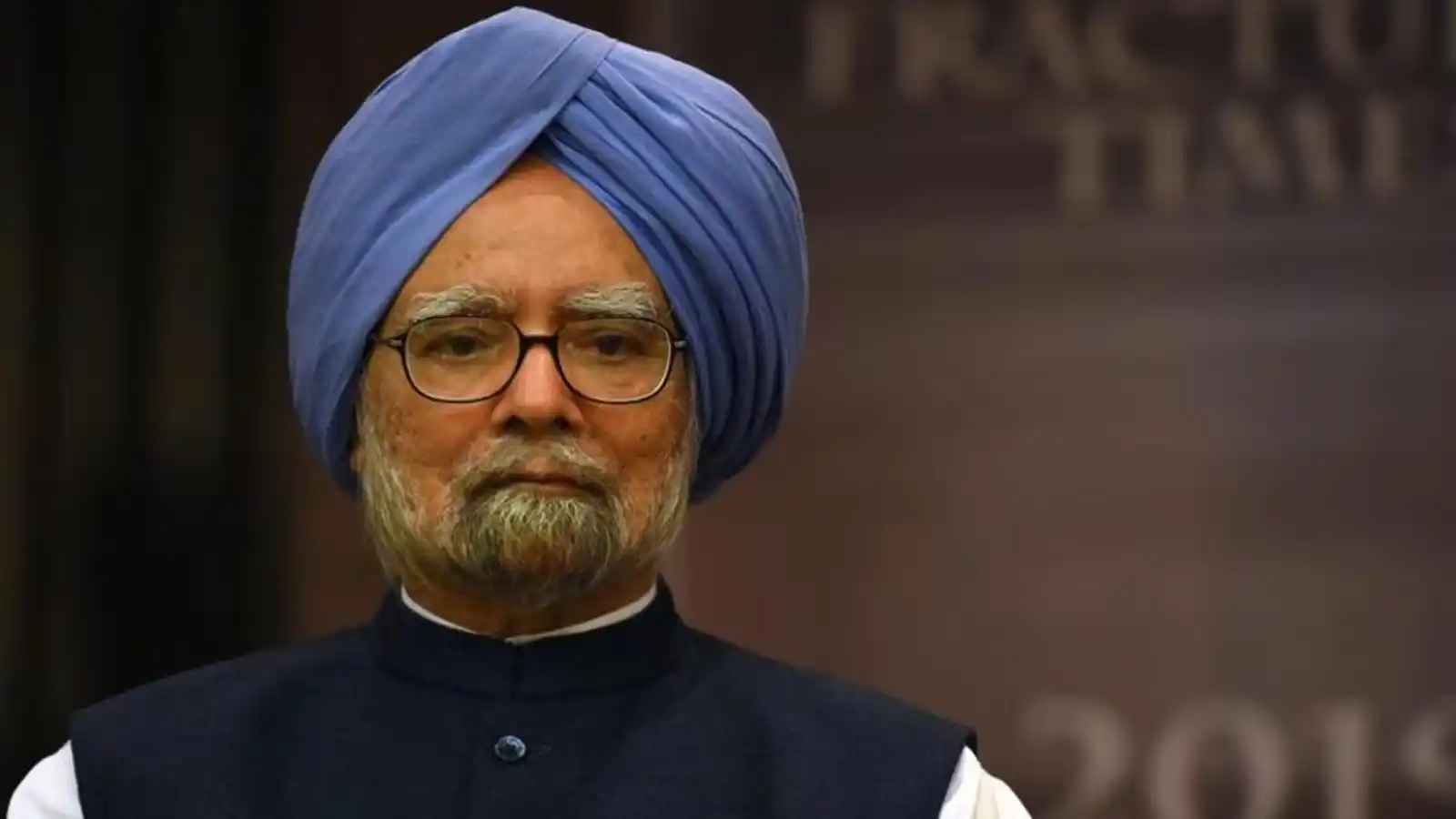
Image Source: Deccan Herald
Dr. Singh's most transformative role came when he was appointed as Finance Minister in 1991 during a period of severe economic crisis for India. The country was facing a balance of payments crisis, leading to dwindling foreign exchange reserves and mounting fiscal deficits.
-
Devaluation of Currency: He devalued the Indian rupee to make exports more competitive.
-
Reduction of Import Tariffs: Tariffs were significantly reduced to encourage foreign investment.
-
Deregulation: The government began dismantling various controls that had stifled entrepreneurship.
-
Privatization: State-owned enterprises were privatized to improve efficiency and productivity.
These reforms marked a significant shift from India's previous protectionist policies and opened up the economy to global markets. As a result, India experienced rapid economic growth during this period—averaging around 6% annually—setting the stage for future prosperity.
Dr. Singh's tenure as Finance Minister not only earned him national acclaim but also established him as a respected figure on the global economic stage.
Prime Ministership (2004-2014)
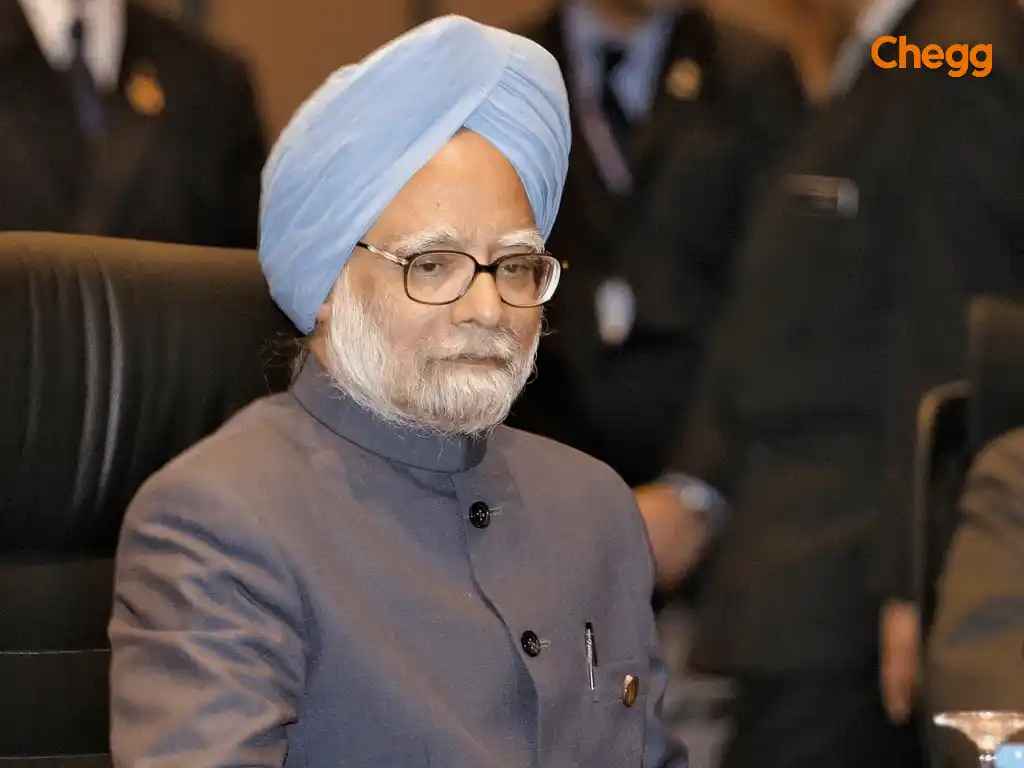
Image Source: cheggindia.com
In 2004, Dr. Manmohan Singh became Prime Minister after leading the Congress Party to victory in the general elections. His election marked a significant moment for Indian politics; he became India's first Sikh Prime Minister and was seen as a symbol of secularism and inclusivity.
During his two terms as Prime Minister (2004-2014), Dr. Singh's administration focused on several key areas:
-
Economic Growth: Under his leadership, India experienced an average GDP growth rate of approximately 7.7%, making it one of the fastest-growing economies globally.
-
Social Welfare Programs: His government launched several initiatives aimed at reducing poverty and improving living standards:
National Rural Employment Guarantee Act (NREGA): This landmark legislation provided guaranteed employment for rural households.
Right to Education Act: Ensured free and compulsory education for children aged 6 to 14 years.
National Food Security Act: Aimed at providing subsidized food grains to ensure food security for all citizens.
Dr. Singh's government also prioritized infrastructure development with initiatives like the National Highways Development Project (NHDP) and rural electrification programs.
Despite these achievements, Dr. Singh faced criticism for being perceived as indecisive or lacking charisma compared to other political leaders.
Key Economic Policies and Reforms
Dr. Manmohan Singh's tenure saw several key economic policies that aimed at sustaining growth while ensuring equitable development:
Liberalization Continued
Building on his earlier reforms as Finance Minister, Dr. Singh continued liberalizing various sectors:
-
Foreign Direct Investment (FDI): Policies were relaxed to attract foreign investment across sectors such as retail, insurance, and telecommunications.
-
Banking Sector Reforms: Strengthened regulations were introduced to enhance financial stability while promoting competition among banks.
Focus on Agriculture
Recognizing that agriculture employs a significant portion of India's population:
-
National Agriculture Policy: Launched to increase agricultural productivity through technology adoption.
-
Debt Relief for Farmers: Initiatives were introduced to alleviate farmers' debts amid rising agrarian distress.
Education and Health
Dr. Singh believed that human capital development was crucial for sustained economic growth:
-
Investment in Higher Education: Increased funding for universities and research institutions.
-
Healthcare Initiatives: Launched programs aimed at improving healthcare access through public-private partnerships.
Infrastructure Development
Infrastructure was identified as a bottleneck for growth:
- National Infrastructure Plan: Aimed at investing over $1 trillion by 2017 to improve roads, railways, ports, and airports.
These policies collectively contributed to India's emergence as one of the world's fastest-growing economies during Dr. Singh's tenure.
Challenges Faced During Tenure
Despite significant achievements, Dr. Manmohan Singh's government faced numerous challenges:
Global Economic Crisis (2008)
The global financial crisis posed serious threats to India's economy:
-
Impact on Exports: Demand for Indian exports plummeted.
-
Slowdown: Growth rates dipped significantly; however, timely intervention helped mitigate some adverse effects.
Corruption Scandals
Dr. Singh's administration was marred by several high-profile corruption scandals:
-
2G Spectrum Scam: Allegations surfaced regarding irregularities in spectrum allocation.
-
Commonwealth Games Scam: Questions arose about financial mismanagement during preparations for the games.
These scandals led to widespread public disillusionment with governance despite Dr. Singh's personal integrity being largely intact.
Political Challenges
The coalition nature of his government often led to conflicts with allies:
- Policy Paralysis: Disagreements within the coalition sometimes hindered decisive action on critical reforms.
Despite these challenges, Dr. Singh managed to maintain stability during turbulent times through consensus-building efforts within his coalition government.
Death Announcement
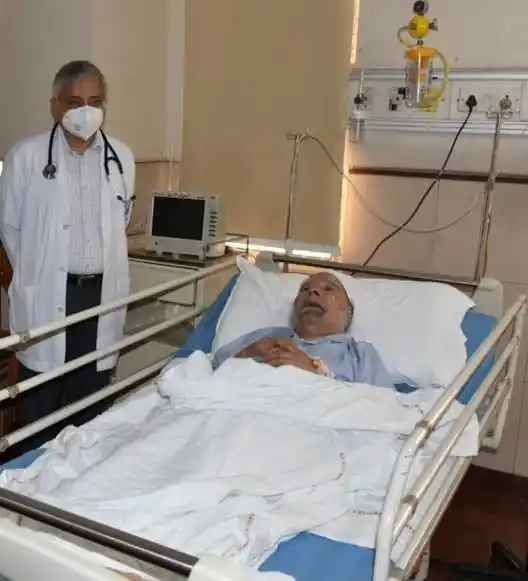
Image Source: Twitter
With profound grief, Doctor announce that Dr. Manmohan Singh passed away on December 26, 2024, at the age of 92 due to age-related medical conditions following a sudden loss of consciousness at home earlier that day. He was admitted to the All India Institute of Medical Sciences (AIIMS) in New Delhi around 8 PM but could not be revived despite immediate medical intervention; he was declared dead at 9:51 PM.
His passing has elicited widespread tributes from political leaders across party lines who have expressed their condolences while reflecting on his contributions to India's development during his tenure as Prime Minister from 2004 until 2014.
Awards and Recognition
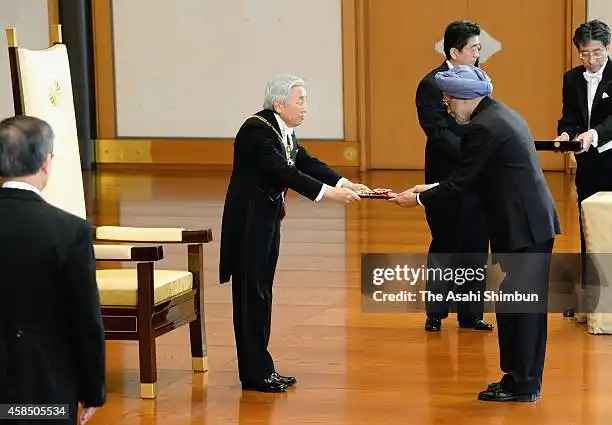
Image Source: gettyimages
Throughout his illustrious career, Dr. Manmohan Singh has received numerous accolades recognizing his contributions:
National Honors
Padma Vibhushan (1987): Awarded India's second-highest civilian honor for exceptional service.
International Recognition
- Euro Money Award for Finance Minister of the Year (1993): Recognized globally for his role in transforming India's economy.
Academic Honors
Dr. Singh has been conferred honorary degrees from prestigious institutions such as:
- University of Cambridge
- University of Oxford
These awards reflect not only his contributions to economics but also his commitment to public service.
Personal Life and Values
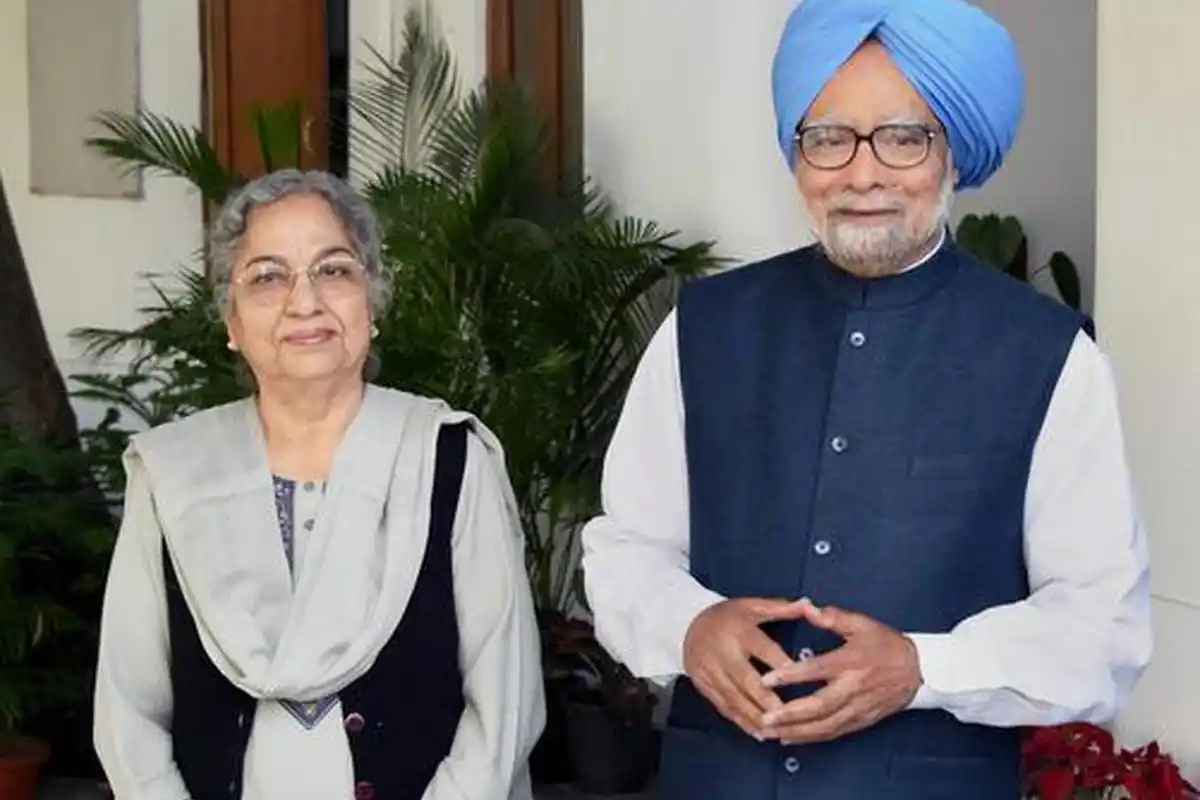
Image Source: th-i.thgim.com
Dr. Manmohan Singh is married to Gursharan Kaur; they have three daughters—Amrit Singh, Daman Singh, and Upinder Singh—who are accomplished professionals in their own right.
Known for his humility and integrity throughout his political career:
- He often emphasized values such as honesty, transparency, and accountability.
Dr. Singh's soft-spoken demeanor contrasts sharply with typical political figures; he is often described as thoughtful yet resolute—a leader who prioritized substance over style.
Conclusion: The Enduring Legacy of Dr. Manmohan Singh
Dr. Manmohan Singh’s legacy is defined by his transformative impact on India's economy and governance structure over two decades of public service—first as Finance Minister during critical reforms in the early '90s and later as Prime Minister overseeing sustained economic growth amidst numerous challenges.
His vision for an economically robust India continues to influence policymakers today; many regard him as one of India's most respected leaders due not only to his economic acumen but also because he exemplifies how academic rigor can translate into effective governance.
As India navigates its path towards becoming a global economic powerhouse amid contemporary challenges like climate change or technological disruption—Dr.Singh’s principles remain relevant—a reminder that sustainable development must always be coupled with inclusivity if we are truly committed towards building an equitable society where every citizen thrives!







